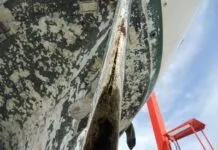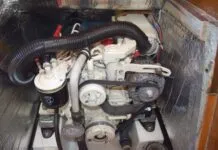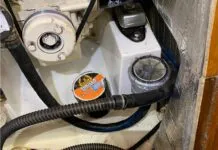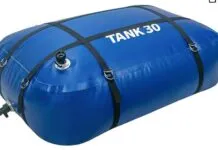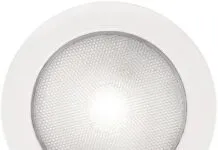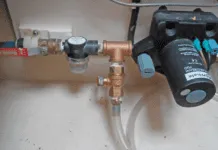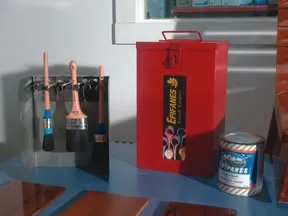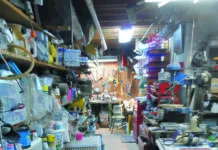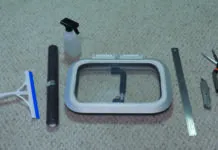There are as many different techniques for brush care and cleaning as there are different brushes. Here are some tips that we’ve found to be effective and fairly easy to carry out.
Pre-project brush prep:
Remove stray bristles and dust by wrapping masking tape around the fingers of one hand several times (10 to 12) with the tapes sticky side out, making the wrap wider than the brush. Move brush bristles back and forth over the tape, as if you’re painting it, until no bristles come out. Clean the brush with thinner to remove tape adhesive and any remaining dust.
Between coats:
Never leave a natural brush soaking in thinner as it will dry out the bristles natural oils. Instead, soak it in kerosene, but be sure to suspend it so the tip is off the can bottom. Rinse it twice in mineral spirits or thinner before re-using it.
Post-project cleanup:
Rinse the brush three or four times in clean thinner. (You can re-use the thinner if you strain the solids out.) Using a brush spinner and a bucket of thinner can expedite this process. Spread the bristles to be sure all varnish/paint is removed, then comb the bristles clean and into shape using a bristle comb. Once all signs of paint or varnish have been cleaned out, dip the bristles in clean motor oil and let them soak for about 10 minutes; wrap bristles in stiff paper and store the brush suspended.
Brushkeeper:
Some prefer to store brushes suspended in diesel or kerosene. There are several products on the market designed for wet brush storage, including the metal Epifanes Brushkeeper (above), but making one is a fairly simple DIY project. You need a container that is big enough for your brushes and is impervious to solvents. If you plan to store the brushes aboard, be sure it can be sealed. The next step is devising a rack system. Coat hangers work for shoreside keepers, but we prefer thin, wooden dowels affixed to the container sides. Be sure the dowels are skinny enough to go through the holes in the brush handles. Fill the container with diesel or kerosene until the ferrule is halfway covered, and you’re done. Before using the brush again, rinse and spin it a few times with mineral spirits.






